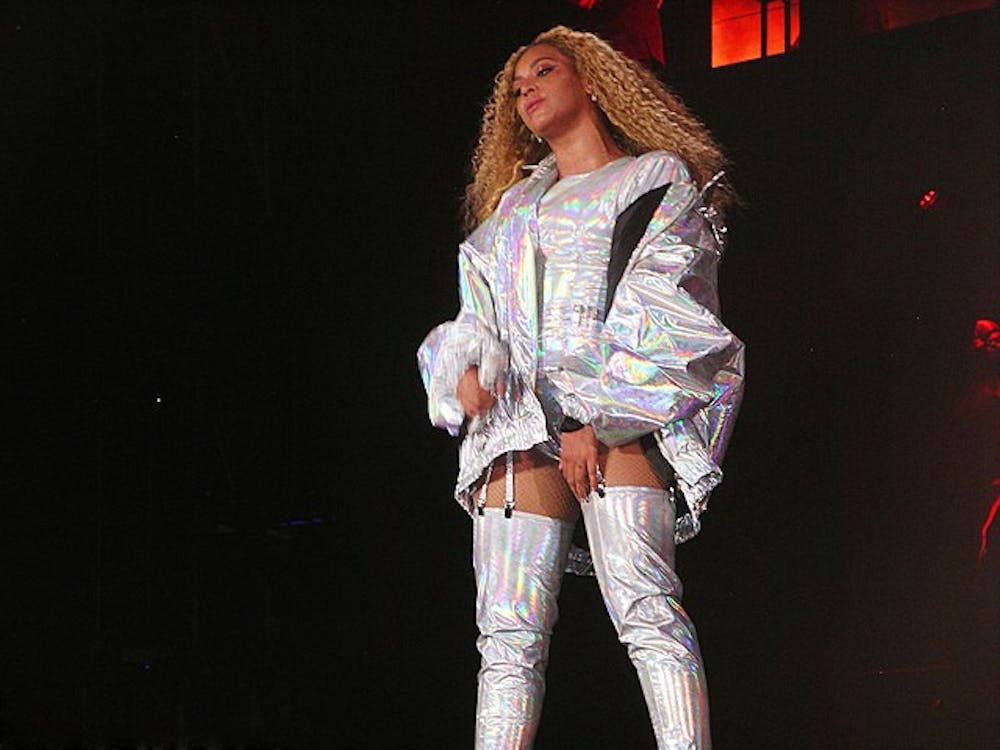By Sky Pinkett
Correspondent
When you think of country music, what likely comes to mind? Perhaps images of 10-gallon hats and cowgirl boots. Lyrics surrounding back-breaking nine-to-fives coupled with drinking beer. Now imagine who the kind of people are that are singing these songs. Most likely Dolly Parton, Luke Bryan, can't forget about Kacey Musgraves and…Beyoncé? Hold up, something doesn't seem right.
Because Beyoncé is a pop singer, right? The same woman who sang the fast-paced “Crazy in Love,” and made the ultimate dance album “Renaissance”? She's a pop artist who dips into her R&B bag every now and then. Far from a country singer.
This is the same argument many within the country music industry have used when asked a very legitimate question: Why did her “Cowboy Carter” album not get nominated for a single category in the Country Music Awards despite topping the Billboard album charts for 22 consecutive weeks?
This is a question that has been asked repeatedly since the CMAs released their nominations list, with Cowboy Carter being curiously — but not so surprisingly — absent from all categories.
On the surface, the answer to these questions and more seem painfully obvious. However, to assuage the defensive sensibilities of those afraid of the “r-word,” it is worth considering a few other conclusions that have been used to explain the album’s absence such as some people reasoning that Beyoncé is strictly a pop artist and is not familiar enough with country (because who ever heard of a singer trying multiple genres. Inconceivable!), or that she clearly does not have the look of a country artist.
These two defenses can be debunked with two simple yet instantly recognizable names: Post Malone and Taylor Swift.
If a former white rapper — who faces stigma for simply being associated with rap, a genre often marginalized in the eyes of prejudiced Americans — and a white pop star with a put-on Southern twang from Pennsylvania can be embraced by country music, then there is absolutely no reason a Black pop star from Texas with a genuine Southern accent can't be welcomed too. I smell a double standard.
Still, it would be easy to fight off racism claims by looking at hip hop artist Shaboozey's nomination for Best Country Single this year. He's a Black man. So how could the CMAs be racist?
Being a Black woman, Beyoncé faces not one, but two unique challenges that the intersectionality of racism and sexism create in her pursuits in the country music industry.
Historically, Black women have been excluded from country music. According to The Birthplace of Country Music's info site, the first black woman to find commercial success in country music was Linda Martell. Her 1970 album “Color Me Country” made her the first black woman to find success on the country Billboard Charts.
In recent years, Black women such as Mickey Guyton, Amythyst Kiah, Valerie June and more have worked tirelessly to break into the country scene. Yet, despite their efforts, none of them have ever won a CMA award.
It is important not to overlook the breakthroughs and wins of various black music artists in the country music scene, such as Shaboozey, Lil Nas X and Tracy Chapman.
Also important to note, however, are the challenges some of these wins came with. Lil Nas X’s “Old Town Road” was infamously snubbed from every CMA category in 2019 except for the Musical Event of the Year category in which he was awarded for having Billy Ray Cyrus on his remix. Even Tracy Chapman only received recognition and won at the CMAs after Luke Combs did a viral cover of her song “Fast Car.”
Linking two historic wins by talented Black artists to two white men is not a good look, to say the least.
To top it all off, this is not the first time Beyoncé has faced unfair treatment at the CMAs. Her 2016 performance with the Chicks faced backlash from country listeners over a Black woman being allowed to take the stage.
It's time to call all of this for what it is: racism, along with sexism, both which perpetuate barriers for Black women in the industry.
It's a great shame that out of all the music genres, country music finds itself being a repeat offender of gatekeeping and discrimination. There is a reason why it is so heavily tied with the American identity. As Ken Burns’ PBS documentary so extensively details, country music can find its influence from Irish immigrants migrating West, newly freed black people settling South after slavery and even from Mexican cowboys residing in Texas. It stands as a shining example of what America’s melting pot looks and sounds like.
For a genre that prides itself in the American way, it is a shame they won't fully embrace this rich history.







